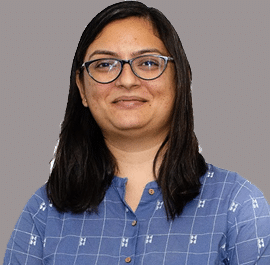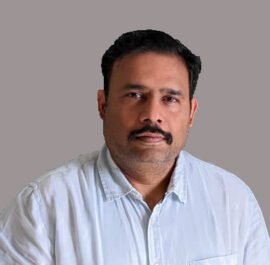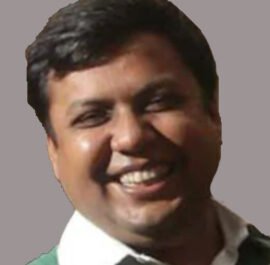Dr. Alok Ji Shukla
Founder & Faculty – Physics
Subjects: Mathematical Physics, Thermodynamics & Statistical Mechanics, and Electromagnetic Theory
Educational & Research Background:
-
PhD in Physics – Centre for Energy Studies (CES), Indian Institute of Technology (IIT), Delhi
-
Research Focus: Electromagnetic Field Computations at the Nanoscale
-
-
Exchange Research Scholar – École Polytechnique Fédérale de Lausanne (EPFL), Switzerland
-
Research Associate – IIT Delhi
-
Assistant Professor – Sri Venkateshwara College, University of Delhi
-
Faculty & Mentor – Avsfiziks, New Delhi
-
Guided CSIR NET, GATE, IIT JAM, and JEST aspirants for over a decade
-
Teaching Expertise:
✅ Mathematical Physics:
-
Guides students through fundamental concepts with practical problem-solving approaches suited for national and international competitive exams.
-
Covers key topics such as:
-
Ordinary Differential Equations (ODEs)
-
Linear Algebra, Matrices & Vector Calculus
-
Fourier Analysis & Partial Differential Equations (PDEs)
-
Complex Analysis, Numerical Techniques & Group Theory
-
Probability & Statistics
-
-
References:
-
Essential Mathematical Methods for Physicists by Weber & Arfken
-
Advanced Engineering Mathematics by Erwin Kreyszig
-
Numerical Techniques by S.S. Sastry
-
The Fast Fourier Transform by Brigham
-
✅ Thermodynamics & Statistical Mechanics:
-
Teaches the subject by connecting fundamental thermodynamics with advanced statistical mechanics concepts, focusing on rigorous calculations and physical interpretations.
-
Covers key topics such as:
-
Kinetic Theory of Gases & Thermodynamics
-
Statistical Tools & Postulates
-
Ensemble Theory: Micro, Canonical, and Grand
-
Identical Particles: Maxwell-Boltzmann, Fermions & Bosons
-
Phase Transition: First-order & Second-order
-
Non-Equilibrium Statistical Mechanics
-
-
References:
-
Fundamentals of Statistical and Thermal Physics by F. Reif
-
Statistical Mechanics by R.K. Patharia
-
A Textbook of Statistical Mechanics by Suresh Chandra
-
✅ Electromagnetic Theory (EMT):
-
Specializes in making EMT accessible to students with a moderate background in vector calculus, ensuring conceptual clarity from Coulomb’s law to radiation.
-
Covers key topics such as:
-
Electrostatics & Magnetostatics
-
Maxwell’s Equations & Boundary Value Problems
-
Electromagnetic Waves & Radiation
-
Relativistic Electrodynamics
-
-
References:
-
Introduction to Electrodynamics by David J. Griffiths
-
Classical Electrodynamics by David Jackson
-
Teaching Philosophy:
Dr. Alok Ji Shukla believes in an interactive, concept-driven teaching methodology. His approach emphasizes:
-
Conceptual Clarity: Introducing complex theories through simplified examples, gradually progressing to advanced-level problem-solving.
-
Multiple Solution Approaches: Demonstrating various methods to solve problems, fostering independent thinking and analytical skills.
-
Mathematical Rigor with Physical Insight: Balancing precise mathematical formulations with the physical interpretation of concepts.
-
Hands-on Learning: Encouraging students to engage in rigorous calculations, tutorial-based practice, and regular doubt-clearing sessions.
About Dr. Alok Ji Shukla:
With extensive academic and research experience, Dr. Shukla brings a unique blend of theoretical knowledge and practical expertise to Pravegaa Education. His passion for teaching and mentoring has empowered numerous students to excel in CSIR NET, GATE, IIT JAM, and JEST.
✅ Join Pravegaa Education and learn from experts like Dr. Alok Ji Shukla to master Physics concepts with depth and precision.



